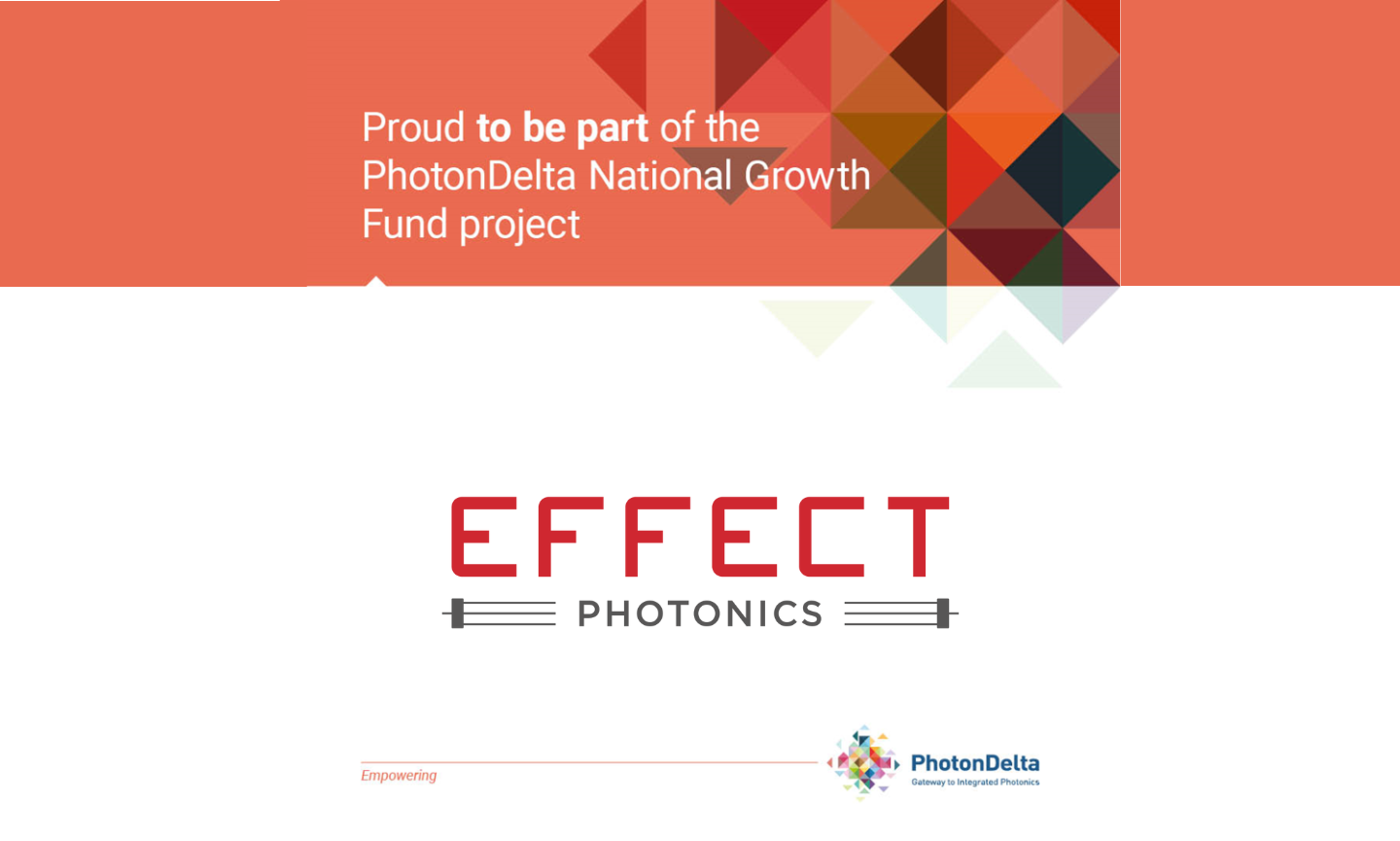PhotonDelta secures €1.1 billion to usher in a new generation of semiconductor technology.
- Capital from the Netherland’s Ministry of Economic Affairs and Climate Policy and other organizations will be used to build 200 startups, scale up production, create new applications for photonic chips and develop infrastructure and talent
- Photonic chips enable the creation of devices that are substantially faster, cheaper to produce, and use considerably less electricity
- Development of photonic tech will tackle societal challenges such as sustainability, create a new European industry, and open the door to a huge range of new applications including quantum computing
Eindhoven, The Netherlands
PhotonDelta, a cross-border ecosystem of photonic chip technology organizations, has secured € 1.1 billion in public and private investment to transform the Netherlands into the leader of the next generation of semiconductors.
The investment includes €470 million of funding obtained through the National Growth Fund (Nationaal Groeifonds), while the rest is co-invested by various partners and stakeholders. It is part of the Dutch Government’s national plan to cement and expand the country’s position as a world leader in integrated photonics.
The program will run for six years and will enable PhotonDelta and its partners to further invest in photonic startups and scaleups, expand production and research facilities, attract and train talent, drive adoption, and develop a world-class design library. By 2030, PhotonDelta aims to have created an ecosystem with hundreds of companies, serving customers worldwide and a wafer production capacity of 100,000+ per year.
Photonics uses photons (light) to transfer information. Photonic chips, also called photonic integrated circuits (PICs), integrate photonic functions into microchips to create smaller, faster and more energy-efficient devices. PICs can process and transmit data much more effectively than their electronic counterparts. Just like with traditional chips, the production process is carried out using automatic wafer-scale technology. This allows the chips to be mass-produced, reducing costs.
Crucially, PICs can overcome the expected limit to Moore’s Law and will also help tackle energy sustainability issues. PICs are currently used in the data and telecom industry to reduce the energy consumption per bit and increase speeds. With data and internet use expected to be around 10% of global electricity consumption by 2027, PICs provide a powerful way to limit the impact on the climate. Photonic circuits will also soon play an important role for innovative sensors that can be mass-produced, leading to earlier diagnostics of diseases, safe autonomous vehicles and infrastructure, and more efficient food production.
Ewit Roos, CEO at PhotonDeltaThis investment is a game-changer. It will make the Netherlands the home of the next generation of semiconductors which will have a profound impact on the whole European tech industry.
The ongoing chip shortage highlights the pressing need for Europe to create its own production capabilities for strategic technologies. We will now be able to support hundreds of startups, researchers, producers and innovators to boost this industry that will be as impactful as the introduction of microelectronics a few decades ago.
The Netherlands is considered a pioneer in the development of PIC technology, and thanks to the continuous support from the Dutch government, we have been able to build a full supply-chain around it that is globally recognized as a hotspot for photonic integration.
Photonic chips are one of the most important technological breakthroughs of the last decade. Not only do they allow for the creation of devices that are faster, cheaper, more powerful and greener – they also enable radical new innovations like affordable point-of-care diagnostics or quantum computing to become a reality.
EFFECT Photonics is honored to be part of the allocation of the National Growth Fund. It is an exciting time for our industry and this kind of on-going support and funding from the Dutch government will bring the maturity and scalability of the Dutch photonics eco-system to the next level and allow us to compete on truly global scale.
Boudewijn Docter at President EFFECT Photonic
For EFFECT Photonics this means that that we will be able to build on our ambition to make photonics simpler, more accessible, and affordable as we further the development of our next generation coherent solutions including the integration of our recently acquired DSP capabilities.
Our thanks go to the Ministry of Economic Affairs and Climate for making this possible and to PhotonDelta for their guidance, organization, and coordination. We very much look forward to working together in the coming months and years to further drive innovations and value in our industry.
The PhotonDelta proposal has been submitted by the Dutch Ministry of Economic Affairs & Climate Policy in close collaboration with Eindhoven University of Technology (TU/e), University of Twente (UT), Delft University of Technology (TUD), Holst Centre, TNO, IMEC, PITC, CITC, OnePlanet, SMART Photonics, LioniX International, EFFECT Photonics, MantiSpectra, PhotonFirst, PHIX, and BRIGHT Photonics.
The PhotonDelta ecosystem currently consists of 26 companies, 11 technology partners and 12 R&D partners. The organization is part of a consortium which has jointly invested €171 million in promising photonics companies including SMART Photonics, PhotonFirst, Surfix, MicroAlign, Solmates and EFFECT Photonics.
ENDS
Notes to Editor
*Conditions include:
- Strategic partnership with a foundry agreed
- Research activity connected with applications of technology
- Ongoing evaluation of PhotonDelta’s ecosystem
Example applications of PICs:
Data & Telecoms: The biggest challenge within this domain is the high energy consumption of data infrastructure. Without any savings made, the share of data and internet use is expected to be around 10% of global electricity consumption by 2027. This includes energy consumption by end-users on the one hand and data centers on the other. 5G, the Internet of Things, and artificial intelligence will further accelerate this. Photonics provides gains in speed, weight, and energy consumption.
Healthcare: The development of mobile, wearable photonic devices (combined with advanced biosensors for direct point-of-care diagnostics and treatment that measure the medical condition and well-being of the wearer) can contribute to early detection and diagnosis of diseases, as well as an earlier and more targeted treatment. Photonics will eliminate the need for a visit to the hospital for many treatments or consultations.
Mobility: The biggest challenge in automotive in the near future lies in the availability of affordable sensors to enable autonomous driving at various stages. With the advantages of photonic chips (weight, speed, cost), the possibilities for self-driving transport are increasing. This has positive implications for road safety and lost travel time is made available again. Photonics can also mean a lot for battery management in electric vehicles and the control of traditional cars. For the aircraft industry, the emphasis is on sensor systems.
AgriFood: To feed a world population that is expected to reach 10 billion by 2050, a drastic increase in food production is needed. But this must be done in a sustainable way: without excess nitrogen or excess CO2 emissions and preferably also in a way in which animal proteins have made way for vegetable proteins. In addition, food safety is an important precondition. The solution lies in precision agriculture, something in which photonics can play a major role. Sensor systems that run on photonics ensure that all requirements regarding safety, health, and sustainability can be met.
Full list of PhotonDelta partners (47):
| Core partners (supply-chain) 25: LioniX International BRIGHT Photonics SMART Photonics PHIX PhotonFirst Aixscale Photonics EFFECT Photonics Pilot Photonics QuiX Quantum Delta Diagnostics Surfix Diagnostics Nostics EFI Instruments Amazec VTEC lasers & sensors MantiSpectra OmmatidiaLidar Demcon Memscan Neuruno Deloq Fuqon Tarucca Aircision | Suppliers (technology partners) 11: Bruco ASML Aixtron Solmates Chip Integration Technology Center (CITC) Etteplan Tyndall Salland Engineering TNO IMS MicroAlign | R&D partners (12): Photonic Integration Technology Center (PITC) University of Twente Eindhoven University of Technology TU Delft Imec Holst Centre OnePlanet Waterloo Institute of Nanotechnology TNO Fraunhofer HHI MIT HighTech XL |
Technical information on photonics tech: https://www.photondelta.com/how-it-works/
More detail on how the investments will be used:
The goal is for accelerated, far-reaching further development of the photonics ecosystem and industrial development. Spread over 3 axes:
- Accelerated industrialization: scaling up and optimizing production processes, new factories and integration with other platforms, such as CMOS or SiPh via ChipLet technology
- Application technology: developing new applications via building blocks to meet major societal (and industrial) challenges
- Ecosystem development: strengthening the ecosystem with targeted investments in weak spots: support startups, scale-ups, campus development, talent development, shared infrastructure for development, access for new entrants
About PhotonDelta
PhotonDelta is an ecosystem that researches, designs, develops, and manufactures solutions with integrated photonics technology. Connecting pioneers in the field with investors, and viable markets, PhotonDelta helps to take the industry forward with funding, investments and R&D roadmaps. PhotonDelta is located in the Netherlands but connects and collaborates throughout Europe. www.photondelta.com
Background PhotonDelta organization
In December 2018, a covenant was signed in which Dutch companies, knowledge institutions and governments pool a total of € 236 million in cash and in-kind resources, with the aim of exploiting the leading knowledge position in the field of integrated photonics and thus creating a strong economic position in the world.
The PhotonDelta partners together form a cohesive and co-operative industrial cluster. The ambitions and strategy for 2019-2026 are laid down in the PhotonDelta National Plan of the Dutch government, which is structured along four strategic pillars. The PhotonDelta Foundation is the implementing organization for this plan and started its activities on 1 January 2019.

